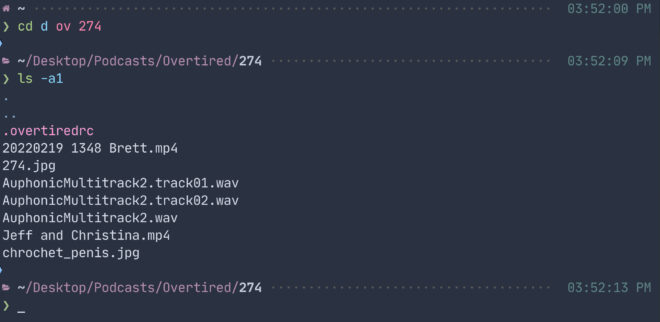The stunning conclusion of the Jeff Severns Guntzel saga. Less stunning than nerdy, really, from dotfiles to keyboard shortcuts. But also Real World Homecoming.
Sponsor
ZocDoc lets you choose a doctor using real patient ratings, and book appointments (live or telehealth) in minutes. No more waiting on hold. Take your healthcare seriously and visit zocdoc.com/OVERTIRED
Live Beautifully with Hunter Douglas – enjoying greater convenience, enhanced style and increased comfort in your home throughout the day. Visit hunterdouglas.com/OVERTIRED for your free Style Gets Smarter design guide with fresh takes, creative ideas and smart solutions for dressing your windows.
Show Links
- Jeff Severns Guntzel on Systematic
- The Real World
- The Real World Homecoming
- TikTok Water Asshole
- DotBot
- Patrick McDonald on dotfiles
- Mackup
- Homebrew
- Homebrew Bundle
- fuzzy_cd for OMF
- Fish shell
- 1Password for SSH
- 1Password Electron Decision
- KeyBindings Cheat Sheet for Dash
Join the Community
Thanks!
You’re downloading today’s show from CacheFly’s network
BackBeat Media Podcast Network
Check out more episodes at overtiredpod.com and subscribe on Apple Podcasts, Spotify, or your favorite podcast app. Find Brett as @ttscoff and Christina as @film_girl, and follow Overtired at @ovrtrd on Twitter.
